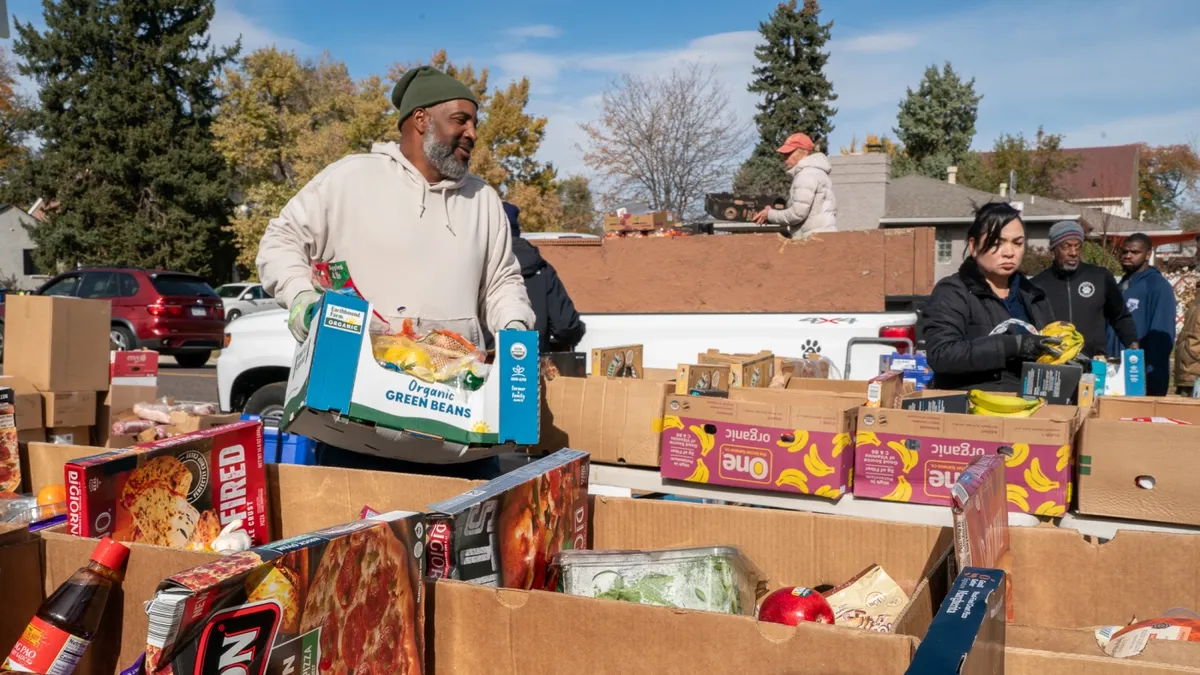
The Trump administration has announced plans to restart SNAP food benefits, albeit at only half of the typical amount that beneficiaries usually receive. This decision is a response to the ongoing federal government shutdown and relies on the Agriculture Department's contingency fund. However, the $5 billion allocated in this fund is significantly less than the full cost of SNAP benefits, which averages around $8 billion each month.
In a recent court filing, officials indicated that depleting the contingency fund could lead to a lack of resources for new SNAP applicants certified in November, as well as for disaster assistance. This move raises concerns about the dire consequences of potentially shutting down SNAP entirely, a program that supports approximately 42 million Americans in need of food assistance.
This decision comes on the heels of two federal judges ruling that the Trump administration's freeze on payments for the nation's largest anti-hunger program is unlawful. Despite the funding running out this past weekend, the government is now compelled to act to restore SNAP benefits. Officials had until Monday to inform the judges of their plans to revive funding amidst the ongoing government shutdown.
The administration has cautioned that there may be significant delays before low-income families can access the SNAP benefits they rely on for their food needs. Currently, about 1 in 8 U.S. residents receive an average of $187 per month through the Supplemental Nutrition Assistance Program, with nearly 39% of recipients being children and adolescents under the age of 18, according to the Department of Agriculture (USDA).
The USDA had previously frozen SNAP funding starting November 1, marking a historic first in the six-decade history of the program. Following the judicial ruling on Friday, both judges emphasized that Congress had provided over $5 billion in emergency funds for such situations, countering the Trump administration's assertion that it could not legally access these funds to maintain SNAP operations.
In Rhode Island, Judge John McConnell Jr. urged the swift use of contingency funds, while Judge Indira Talwani in Boston mentioned that additional funds from customs revenues could also be utilized, leaving the decision to the Trump administration, which has thus far refrained from taking action.
After the rulings, President Trump expressed on social media that his legal team would seek additional guidance from the court regarding SNAP funding, promising that he would take action if necessary, similar to previous funding commitments for military and law enforcement.
Delays in benefit distribution were anticipated regardless of the court's rulings, as many beneficiaries typically receive their benefits early in the month. The process of reloading benefits onto SNAP cards can take a week or longer in various states. The government has indicated that state agencies will need to adjust their eligibility systems to accommodate the reduced benefits, and the timeline for these changes remains uncertain, potentially extending from weeks to several months.
The Trump administration has previously described the calculation of partial payments as a logistical nightmare, further complicating the situation amidst the ongoing shutdown. Some states, including Arkansas, New Hampshire, and Washington, have initiated measures to support local food banks and pantries during this challenging time, despite the administration's warning that it will not reimburse states for any shortfall in SNAP funding.
As the situation unfolds, it is evident that many families are experiencing a significant loss in their food budgets. Anti-hunger advocates are voicing concerns that food banks alone cannot bridge the gap left by SNAP cuts. Elizabeth Keever, Chief Resource Officer at Harvesters, a food bank in Kansas City, Missouri, remarked on the overwhelming challenge of compensating for the SNAP shortfall, emphasizing the uncertainty and fear surrounding the current situation.
In conclusion, while the Trump administration's efforts to restart SNAP food benefits are underway, the reductions and potential delays create a precarious situation for millions of Americans who rely on this essential program for their nutritional needs. The ongoing developments highlight the critical nature of food assistance programs in alleviating hunger in the United States.